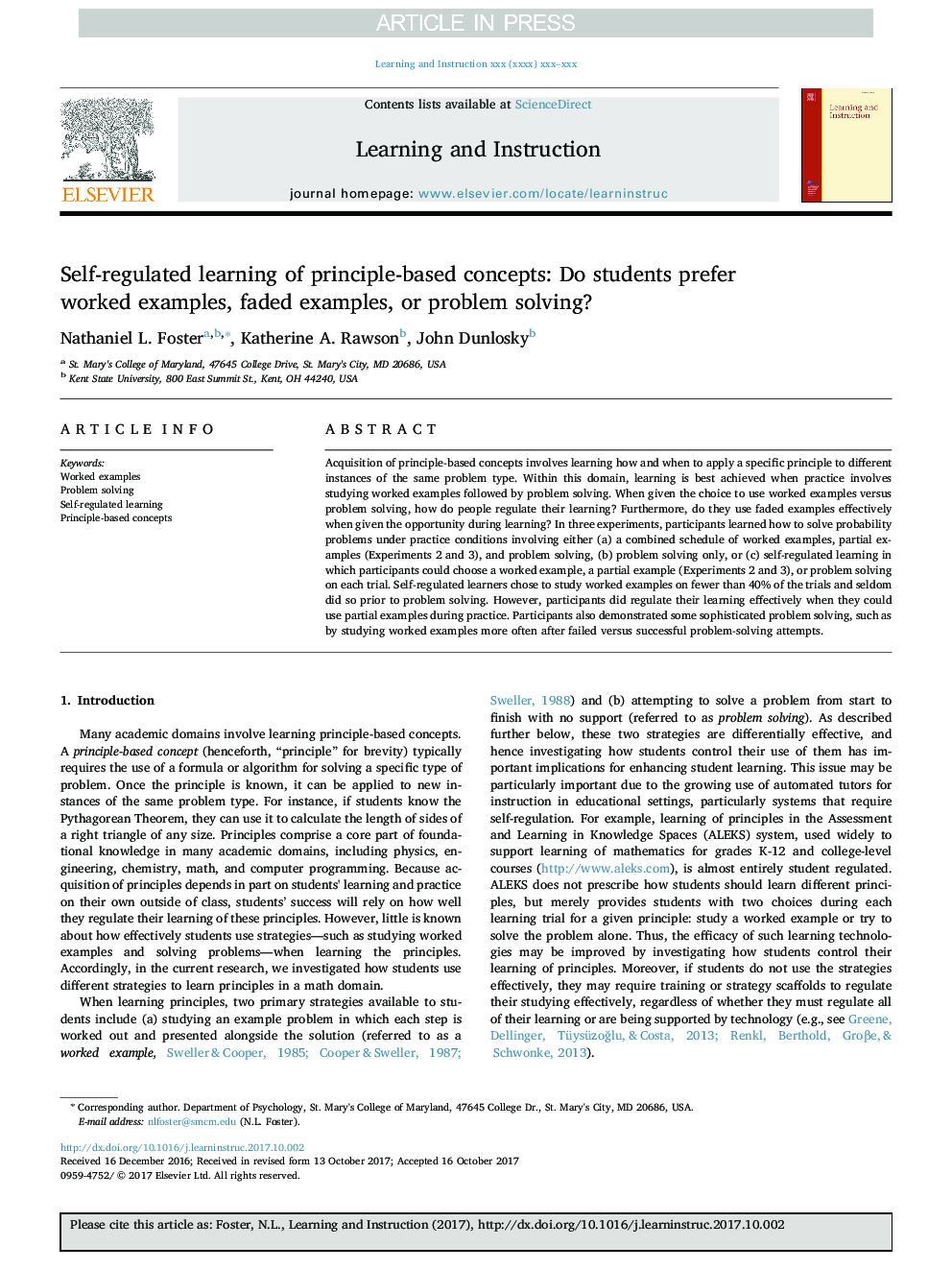| Article ID | Journal | Published Year | Pages | File Type |
|---|---|---|---|---|
| 6845609 | Learning and Instruction | 2018 | 15 Pages |
Abstract
Acquisition of principle-based concepts involves learning how and when to apply a specific principle to different instances of the same problem type. Within this domain, learning is best achieved when practice involves studying worked examples followed by problem solving. When given the choice to use worked examples versus problem solving, how do people regulate their learning? Furthermore, do they use faded examples effectively when given the opportunity during learning? In three experiments, participants learned how to solve probability problems under practice conditions involving either (a) a combined schedule of worked examples, partial examples (Experiments 2 and 3), and problem solving, (b) problem solving only, or (c) self-regulated learning in which participants could choose a worked example, a partial example (Experiments 2 and 3), or problem solving on each trial. Self-regulated learners chose to study worked examples on fewer than 40% of the trials and seldom did so prior to problem solving. However, participants did regulate their learning effectively when they could use partial examples during practice. Participants also demonstrated some sophisticated problem solving, such as by studying worked examples more often after failed versus successful problem-solving attempts.
Related Topics
Social Sciences and Humanities
Psychology
Developmental and Educational Psychology
Authors
Nathaniel L. Foster, Katherine A. Rawson, John Dunlosky,
